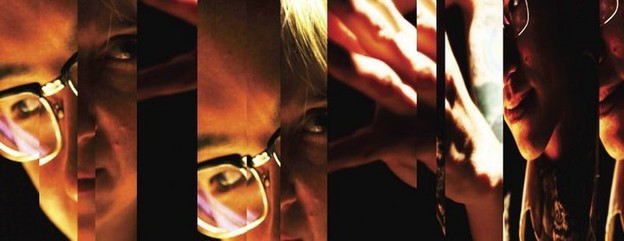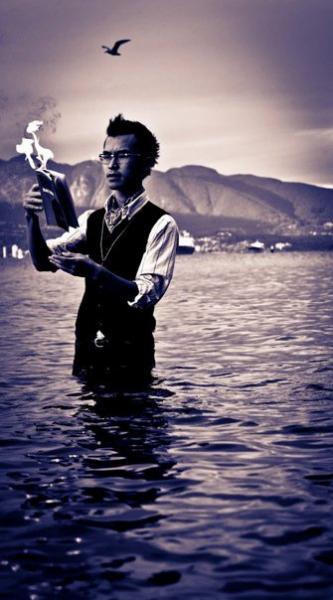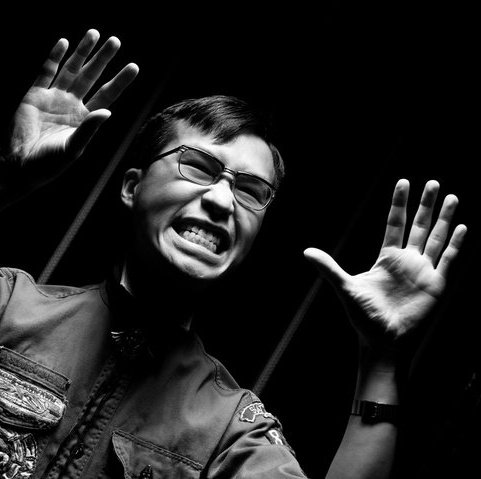The ray of way

Ray Hsu is a rockstar who writes books. Or he is a poet who collaborates. Or he is a collaborator who performs. Or he is a performer who teaches. Or he is a teacher who rocks out online at thewayofray.com. Or on his YouTube channel. Critical of the rising tension between “online” and “print”, Ray Hsu works with artists as collaborators, publishers as collaborators and venues as collaborators. To comment on his work I must collaborate with it. The following commentary has been composed entirely of fragments from Ray Hsu’s Cold Sleep Permanent Afternoon, and as such can be read as an online performance of his print.
One sees oneself not as one is, but as others. Mischievous surfaces. Your documents please. One can only do as one does and yet we make do, go on, as if our troops are us. I am at home where I am missing. Problem is all this feels outdated. Books books books. On paper, everything equals out. I, for one, want bravely to be random. Strictly speaking, this may not seem like useful advice, but I think you should do whatever feels natural.
 Facts are broken as a vase breaks. The instability of where we are. A number of illusions have appeared since we have begun demanding documentation. Citizen. King. Border. Narrator. Here is the disappointment we call language. For a moment I look like a fool.
Facts are broken as a vase breaks. The instability of where we are. A number of illusions have appeared since we have begun demanding documentation. Citizen. King. Border. Narrator. Here is the disappointment we call language. For a moment I look like a fool.
I have recited nothing. Public words. My kind of power was a good session at the table. That lattice. Phones stick in our throats. The roar you want is not there. He smoothes the table with as little as possible. It is the open season. See our great cities flow and collapse. Tell me again about the radio, the radio that forgot it was a radio and grew roots… I saw my bird grow old. Soon we will make the tundra understand our need.
Over time, my characters developed many interesting facts. In a room, I copy down a few that are scattered throughout this book.
 Ray Hsu is author of Anthropy (Nightwood Editions, 2004) and Cold Sleep Permanent Afternoon (Nightwood Editions, 2010). He taught writing for over two years in a US prison and now teaches at the University of British Columbia in Vancouver, where he collaborates across disciplines, districts, and dinner tables.
Ray Hsu is author of Anthropy (Nightwood Editions, 2004) and Cold Sleep Permanent Afternoon (Nightwood Editions, 2010). He taught writing for over two years in a US prison and now teaches at the University of British Columbia in Vancouver, where he collaborates across disciplines, districts, and dinner tables.
Folding Borders: Experimenting in the Canadian Laboratory